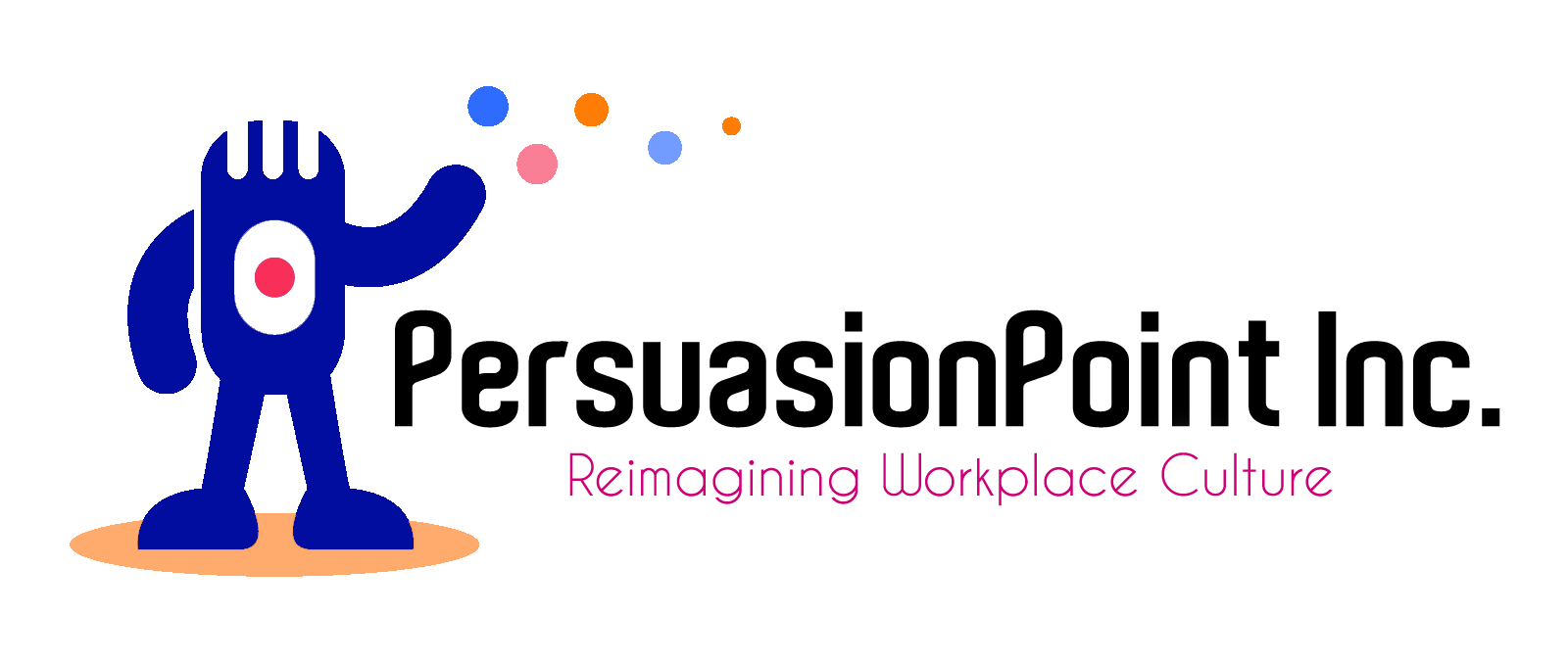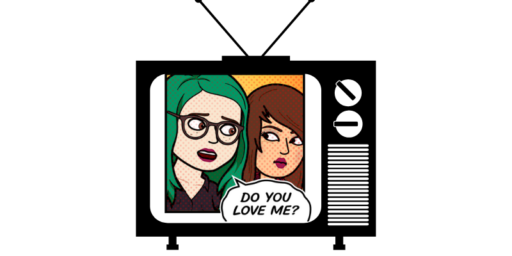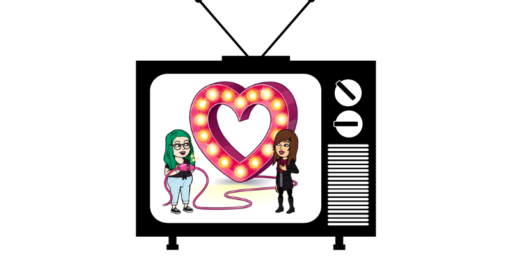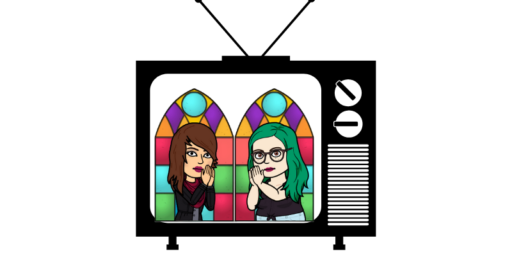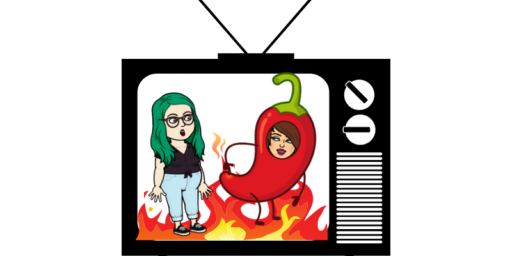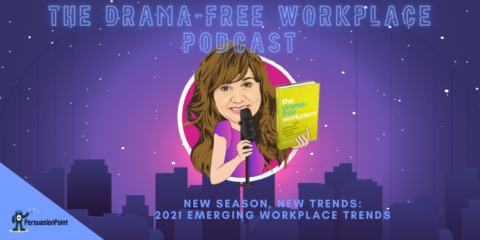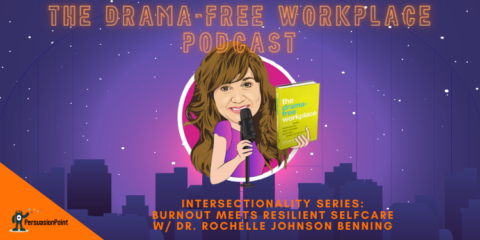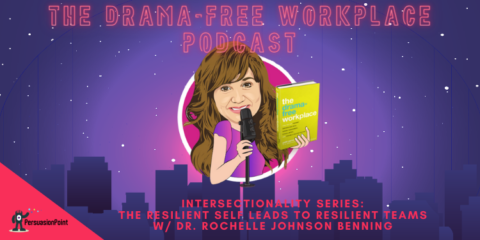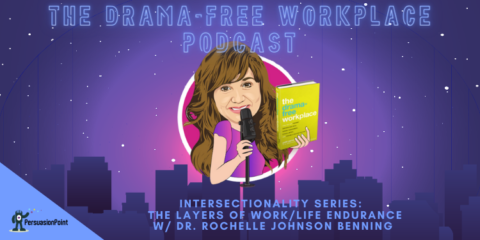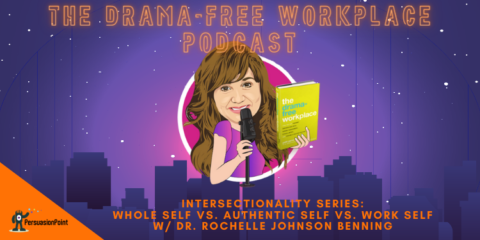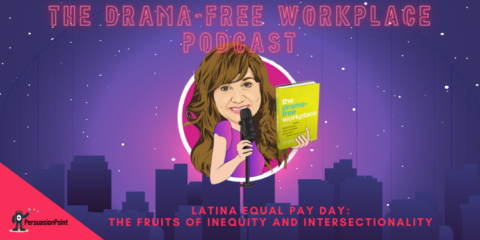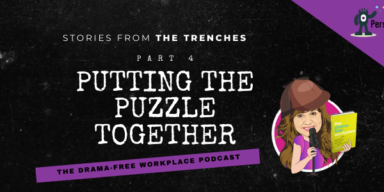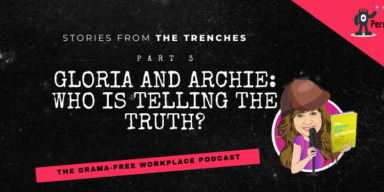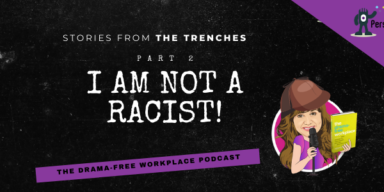Written by Katie Foggiano
This article is part of our Alive After ‘85 Series
Content warning: This article contains material that may be triggering for fat-bodied individuals, as well as those who suffer or have previously suffered from an eating disorder. The author of this article acknowledges the BMI scale is problematic and rooted in racism. The author only uses BMI language around studies in which it is referenced, as that is all that exists. Please take care of yourself upon reading this article.
Talk of diets and weight loss goals have become ingrained in society, and workplace environments are no different. The topic flows as freely as the water being dispensed from the coolers these conversations happen around.
“This year I am going to get my life together and lose weight.”
“Next month, I am starting a 30 day cleanse.”
“I need to get my weight under control. I’ve gotten so fat in quarantine.”
And this is where I come in…
Size 22 surrounded by size 6 individuals complaining about how unflattering they look and how fat they have gotten. And suddenly, I find myself unable to drink the water I’ve just gotten because I’m too busy biting my tongue – proverbial or otherwise.
What can I possibly say in these situations? I can’t scoff at the conversation, letting them know that they are not fat in comparison to me. I have made that mistake before. It simply opens the floodgates for a cacophony of, “Oh stop. You aren’t fat, you are beautiful.”
I am aware that I am beautiful. That was not what I said.
Even more, I can’t say what I want to say. “I cannot control that you are doing the Whole Keto Watcher Atkins 45 Day Cleanse, Jan; but can I point out the toxicity of you only talking about your diets as if it were a personality trait?” That wouldn’t go over very well either.
I recently attended the Beyond Body Positive workshop with Be Nourished, in which the guest speaker, Sirius Bonner (VP of Equity and Inclusion for Planned Parenthood Columbia Willamette), made the point that the “body positive movement” as a whole has become equated to that of the All Lives Matter counter-movement (yep, read that again). “Fat” is not a bad word (maybe read this one again, too). We are working on reclaiming this word – fat – for ourselves.
Please note that I am not here to tell you that you don’t also struggle with issues in regards to body image; that is not the point. Rather, I need you to understand that your perceived plight is not the same as mine, someone who qualifies as a medium fat individual. (For more information about what this means, check out this article.) Truthfully, there is no reason that we should expect your experience to be the same as mine. Comparing bodies is how we got into this mess with body image, to begin with.
What does this mean for the workplace?
In a 2007 study by Roehling, Roehling, and Pichler, the researchers found, “…that women are over 16 times more likely than men to perceive employment related discrimination and identify weight as the basis for their discriminatory experience. In addition, overweight respondents were 12 times more likely than normal weight respondents to report weight-related employment discrimination, obese 37 times more likely, and severely obese more than 100 times more likely.“ That means that I am 100 times more likely to be discriminated against due to my weight.
Okay, but what does that actually look like? Let’s break this down: it means being subjected to jokes and insults certainly. Even further, it means I am subject to verbal triggers, lack of grace for missteps, am held to a higher standard for how I dress, am judged more harshly on my work ethic… Hell, it even means a harder time getting past early interview stages. And, all the while, not being provided with the necessities of someone who is a straight size that works in an office (like a chair that I can comfortably sit in).
73% of adults in the US are considered overweight or obese by the CDC. Therefore, this is a much more common problem that affects people of all walks of life on the daily. Workplaces need to be better about how they address and discuss “health” in the workplace.
The Effect
The culture of weight loss competitions in workplaces and encouraging new year trends are counteractive in creating a healthy and inclusive workplace. Encouraging employees to be active, to move away from their screens and stretch, providing healthy catered lunches, and drinking more water earns gold stars across the board! Bonuses given to the team that can lose the most weight ends up triggering many fat-bodied and non-fat-bodied individuals who may have struggled (or are currently struggling) with an eating disorder. By focusing on weight loss, you are missing the point of encouraging and creating an investment in health and wellbeing.
For work to be a place of authenticity and honesty for everyone, fatphobia must be addressed within it. Educating yourself by attending workshops like the one mentioned in this article is a place to start.
I once worked with a woman who was very vocal about the stress of working for the company and the weight it caused her to gain. One day she brought up how baggy her clothes are fitting. “I don’t know if you noticed, but I am down another 15 lbs,” she stated, opening the door wide for a compliment.
I took a breath and responded, “Are you happy?” She just stared at me flabbergasted.
After an uncomfortable pause, she responded, “What the hell. You didn’t have to be so rude. You could have just said congratulations,” and proceeded to walk away.
I felt like utter crap after she stormed away. I didn’t mean to come across as rude or unfeeling. This simple interaction couldn’t be that controversial… could it? I started to panic. This woman was a known gossip. She would spread that I was mean and cold, and then people wouldn’t talk to me anymore.
I took a deep breath and realized that I was not in the wrong, but rather she was for attempting to guilt me for not congratulating her. I do not believe in congratulating people on weight loss. My opinion should not be a factor in an individual’s happiness with their body. She may place judgment on my body, but I realize that I am in no place to put judgment on her body.
Why this story
I wanted to tell this story for a few reasons:
Society’s Obsession with Rewarding Weight Loss
This is not an uncommon occurrence for me. As a matter of fact, while this was one of the more prominent blowups, this shit happens ALL THE TIME. In work, outside of work, in books, on TV and film… and don’t even get me started with social media.
I am constantly being triggered by people asking or begging for the approval of their bodies. It is to the point where people don’t even realize they are doing it anymore! It is so ingrained in our being that fat is bad, less than, or unworthy, that people will stop at no cost to achieve “thinness”. As such it has created thin privilege and so many damaging effects to those who feel that they cannot achieve an ideal thinness.
The Assumption that Weight Loss = Happiness
Do blondes actually have more fun? No. Do short people all have Napoleon complexes? Nope. Does wearing glasses actually make you smarter? Negative.
So how have we made ourselves believe that losing weight will equate to reaching Nirvana? How have we gotten to the point where the only way we can ever be happy is if we are a certain weight? I have not been in my “weight category” according to BMI since I was 9 years old, yet I have still encountered endless happy moments in my life, regardless of my size, height, or hair color. And you know what: I bet you have too. It is dangerous and unhealthy for all of us to continue to adhere to a belief principle such as weight loss equating to happiness. It will only perpetuate health myths, diet culture, and mental health issues.
Here is where you come in
To non-fat-bodied individuals:
- Be self-aware. What do you do that could be triggering or has been ingrained in your consciousness that maybe is no longer serving you or society? How can you course-correct and change your actions behind those thoughts?
- Be an ally. In fact, go even one step further from allyship to show radical kinship. Do you see someone else doing something toxic or triggering? Time to step up for those who may not be ready to yet stand up for themselves. This doesn’t need to be aggressive, but it does need to be done.
- And finally, mind your own damn business. If you see yourself thinking about commenting on fat creators’ posts or pictures, saying that they promote unhealthy lifestyles… just stop and keep scrolling. Thinking about joking with a friend or colleague about getting a salad instead…don’t. It is as simple as that to start taking the necessary steps to mindfulness.
To my fellow fat-bodied individuals:
- Be self-aware. We are our own worst enemies. In order to reclaim the word fat, we have to examine our relationship to the word. When do we still make toxic comments or have toxic thoughts? How can we reframe or course-correct those thoughts?
- Educate. This can be done in many ways. It can be providing research, book or media recommendations, or being open and sharing personal experiences. The latter is the hardest and most tiring. With that in mind…
- Rest so you can keep fighting. We are our own best advocates. Take social media breaks, meditate, and take care of yourself. Remember that you are not alone in this fight. Standing up for ourselves is often more exhausting than calling out others, but the work must be done.
In order to make a change, we have to start calling out the missteps. Whether you are a size 2 or a size 28, we all need to start speaking up about the inequalities associated with toxic societal weight beliefs when we witness them, otherwise, nothing is going to change, be it inside the workplace or out.
About the author
Katie Foggiano (she/her/hers) is known as the Swiss Army Knife at PersuasionPoint, where she does a little bit of everything from analyzing client data to finances to graphic design. A graduate in Theatre from Concordia University Irvine, she has worked in producing, casting, and literary at the La Jolla Playhouse and Actors Theatre of Louisville. She also served as the Marketing Director at First Floor Theater in Chicago. After trying her hand in finance in corporate America, she is very happy to be with her new family at PersuasionPoint. Katie is currently working towards her MA in Museum Studies from Johns Hopkins University. With a strong drive to make everyone’s job an equitable and healthy environment, she believes fat is not a bad word, decolonization is key, and Black Lives Matter.
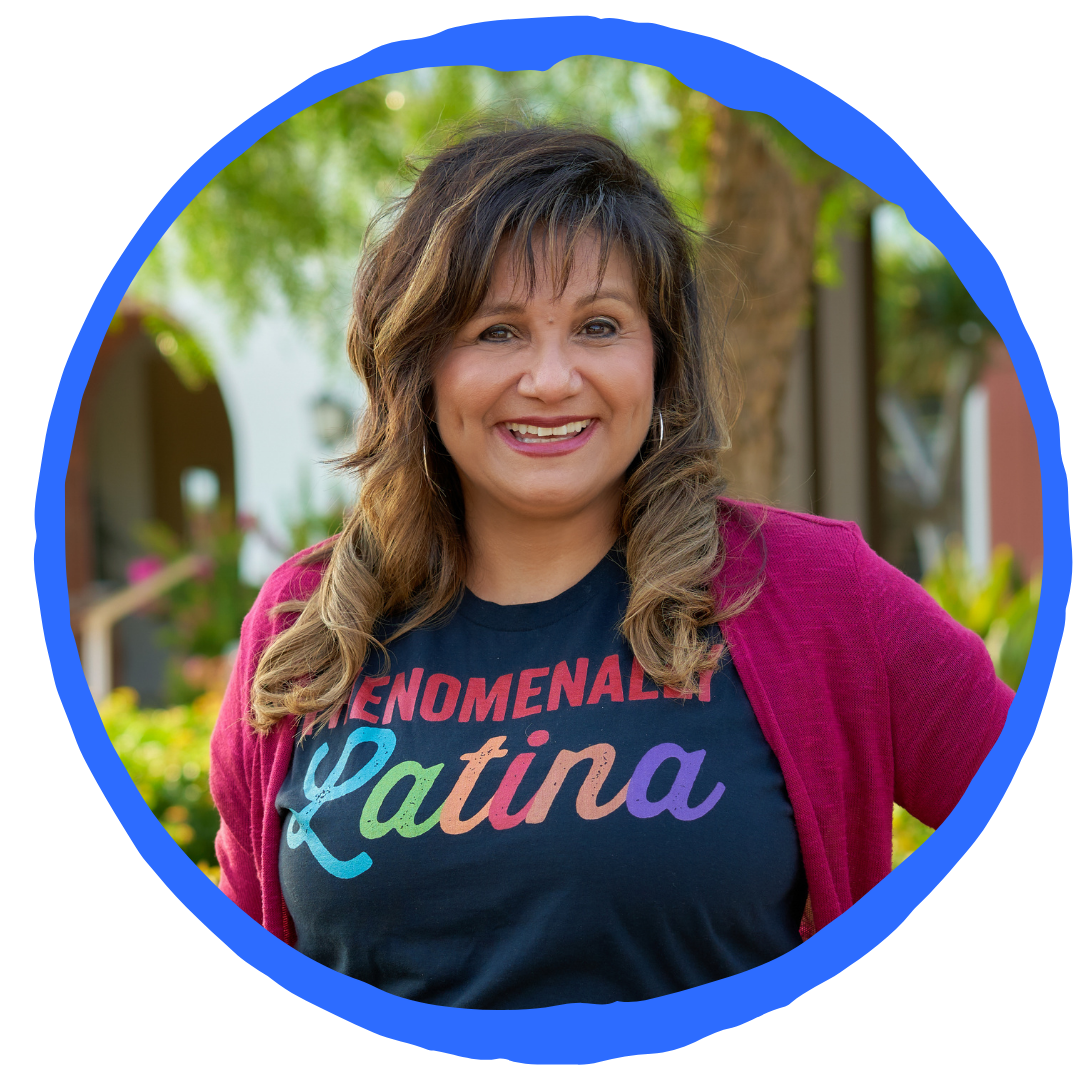
About PersuasionPoint
Patti Perez is founder and CEO of PersuasionPoint, a modern-day consulting firm dedicated to teaching leaders and teams how to create and sustain healthy, equitable and inclusive workplace cultures. Patti is the best-selling, award-winning author of The Drama-Free Workplace (Wiley 2019), and draws from the book’s themes to provide practical, authentic, and action-oriented solutions to help companies achieve true diversity and equity, and to create environments of belonging and inclusion.
Patti and the team provide services specifically tailored to address workplace struggles with recruiting, retaining, promoting and fully valuing diverse employees – including consulting, leadership training, and boot camps for diverse attorneys who are emerging leaders.
Contact Patti here or email her directly at Patti@PersuasionPoint.com.
